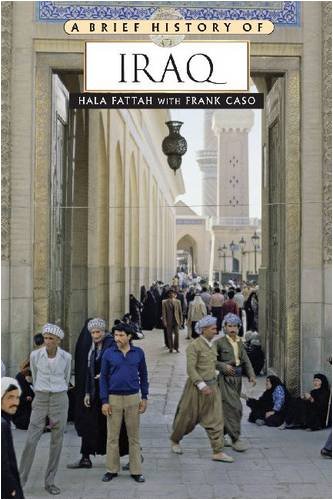

Most ebook files are in PDF format, so you can easily read them using various software such as Foxit Reader or directly on the Google Chrome browser.
Some ebook files are released by publishers in other formats such as .awz, .mobi, .epub, .fb2, etc. You may need to install specific software to read these formats on mobile/PC, such as Calibre.
Please read the tutorial at this link: https://ebookbell.com/faq
We offer FREE conversion to the popular formats you request; however, this may take some time. Therefore, right after payment, please email us, and we will try to provide the service as quickly as possible.
For some exceptional file formats or broken links (if any), please refrain from opening any disputes. Instead, email us first, and we will try to assist within a maximum of 6 hours.
EbookBell Team

5.0
40 reviews
ISBN 10: 0816077371
ISBN 13: 9780816077373
Author: Hala Mundhir Fattah, Frank Caso
Part 1: The Cradle of Civilization (Ancient Mesopotamia)
Part 2: From Empires to the Islamic Golden Age
Part 3: Decline, Division, and Ottoman Rule
Part 4: The Birth of Modern Iraq (1914-1958)
Part 5: Decades of Turmoil and Dictatorship (1958-2003)
Part 6: Post-Invasion Iraq and Contemporary Challenges
Conclusion: Iraq's Unfinished Journey
a brief history of iraq
what is the history of iraq
when was the name iraq first used
a brief history of iran
a military history of the iraq war
Tags: Hala Mundhir Fattah, Frank Caso, Brief, History